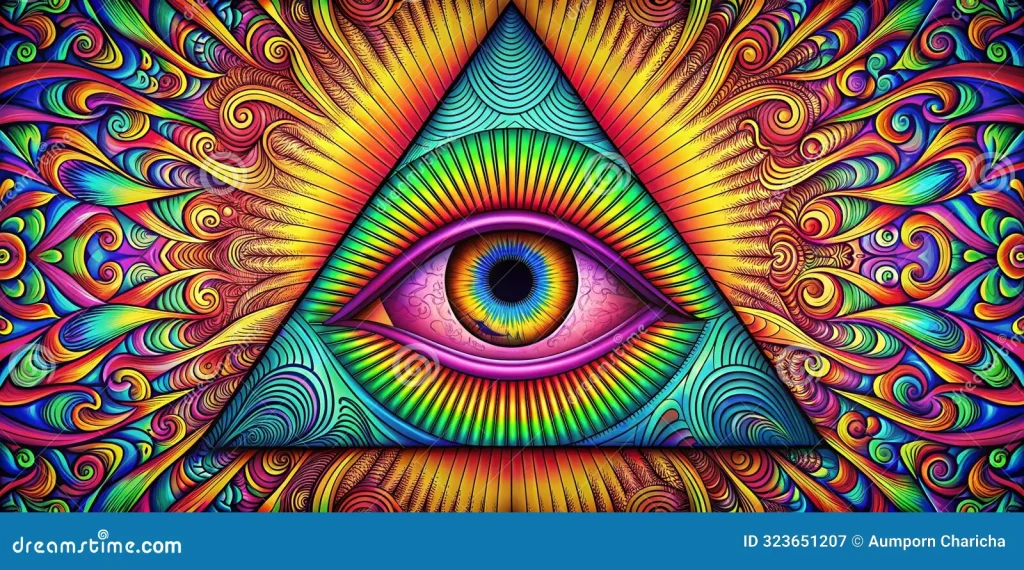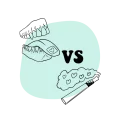Can DMT Be Used Therapeutically? Exploring Its Healing Potential
Dimethyltryptamine (DMT) is a naturally occurring psychedelic compound that has captured the attention of researchers, mental health professionals, and spiritual seekers alike. Known for its powerful, short-lasting effects on the mind and consciousness, DMT has been historically used in shamanic traditions in South America as part of the ayahuasca brew. However, its therapeutic potential in modern clinical settings is now being explored more extensively. Although research is still in its early stages, progress is being made in understanding its potential. There is growing interest in the possibility that DMT could play a role in healing psychological and emotional conditions. Can DMT Be Used Therapeutically
This article will explore the therapeutic potential of DMT. Examining the ways it may be used to treat mental health issues such as depression, anxiety, PTSD, and addiction. It will also cover DMT’s effects on the brain, risks, challenges, and its future in clinical therapy. Can DMT Be Used Therapeutically

What Is DMT? Can DMT Be Used Therapeutically
Chemical Composition and Natural Occurrence
DMT (N,N-Dimethyltryptamine) is a powerful psychedelic compound found in various plant species and trace amounts in the human body. Additionally, DMT belongs to the tryptamine family and is chemically related to serotonin, a neurotransmitter that regulates mood and perception. While DMT is most famous for its use in ayahuasca ceremonies, it can also be synthesized in the laboratory. Can DMT Be Used Therapeutically
DMT is thought to be naturally produced in the human brain, especially in the pineal gland, though research is inconclusive. The substance induces intense hallucinations, altering time, space, and creating transformative experiences. Can DMT Be Used Therapeutically
Traditional Use of DMT in Shamanic Healing
DMT has been used for centuries in South American indigenous cultures, particularly in the form of ayahuasca, a brew made from combining plants containing DMT with other substances that allow it to be orally active. In these traditional settings, DMT is used for spiritual and healing purposes. Shamans believe that the substance enables individuals to access higher states of consciousness, communicate with spiritual entities, and gain insights into their personal lives and the universe. Can DMT Be Used Therapeutically
Though not scientifically proven, these traditional uses offer context for understanding DMT’s potential as a tool for healing and growth.
The Growing Interest in Psychedelic Therapy
A Renaissance in Psychedelic Research
In recent years, there has been a resurgence of interest in psychedelic substances, including DMT, as potential therapeutic agents. Mental health conditions like depression, anxiety, PTSD, and addiction are hard to treat with conventional therapies, fueling interest in alternatives. Psychedelic research, including DMT studies, shows potential in helping people heal in ways traditional methods can’t. Can DMT Be Used Therapeutically
The global shift in perspective toward psychedelic therapy is marked by increased funding for research, clinical trials, and growing acceptance of substances like psilocybin, MDMA, and DMT. Consequently, as these substances are investigated for their healing capabilities, DMT is emerging as a potential treatment for various mental health issues. Can DMT Be Used Therapeutically
DMT as a Therapeutic Tool
DMT has mainly been studied for spiritual or recreational use, but interest in its therapeutic potential is growing. Researchers wonder if DMT’s effects on consciousness can benefit those with emotional or psychological difficulties. DMT may induce profound, mystical experiences, leading to emotional healing, perspective shifts, and personal growth. Can DMT Be Used Therapeutically
How DMT Affects the Brain
Neurobiological Effects
DMT produces its effects by interacting with serotonin receptors in the brain, specifically the 5-HT2A receptor. This receptor is involved in regulating mood, perception, and cognition, and is also targeted by other psychedelics like psilocybin and LSD. When DMT binds to this receptor, it induces a dramatic shift in consciousness, leading to vivid visual and auditory hallucinations, alterations in time perception, and intense emotional experiences. Can DMT Be Used Therapeutically
Research shows psychedelics like DMT increase brain connectivity, activating areas that don’t usually communicate. Consequently, this activity impacts perception, cognition, and emotion. As a result, DMT’s ability to promote connectivity may help break rigid mental and emotional patterns, thereby aiding therapy. Can DMT Be Used Therapeutically
The Experience of DMT
The DMT experience is often described as a journey to another realm of existence. Users frequently report out-of-body experiences, encounters with seemingly sentient entities, and vivid, dreamlike visualizations. These experiences can be both therapeutic and challenging, depending on the individual’s mental state, the setting, and the intentions for using the substance. Can DMT Be Used Therapeutically
Therapeutically, the intense nature of the DMT experience may provide individuals with a unique opportunity to confront deep-seated emotional issues, unresolved trauma, or negative thought patterns. The insights gained during these experiences can sometimes lead to lasting shifts in how individuals perceive themselves, their relationships, and their place in the world. Can DMT Be Used Therapeutically
Potential Therapeutic Applications of DMT
Treating Depression and Anxiety
DMT’s potential in treating mood disorders, such as depression and anxiety, lies in its ability to alter brain chemistry and provide individuals with new perspectives on their emotional state. Depression is often characterized by a persistent negative outlook and rigid thought patterns, which can be difficult to break. However, by altering these thought patterns, DMT may offer a way to “reset” the brain, ultimately allowing individuals to experience relief from depressive symptoms. Can DMT Be Used Therapeutically
DMT is not commonly used for depression, but some reports suggest it improves mood in controlled, therapeutic settings. These reports align with studies on psilocybin, showing that psychedelics can facilitate lasting emotional breakthroughs. Can DMT Be Used Therapeutically
PTSD and Trauma Healing
PTSD arises from traumatic events, often leading to flashbacks, hyperarousal, and emotional numbness. Traditional therapies may not always work, especially for deep trauma.
Research suggests that psychedelics, including DMT, can help individuals confront and process trauma by allowing them to view their experiences from a new perspective. DMT’s ability to induce vivid, sometimes emotionally intense experiences may help patients access buried emotions, confront painful memories, and integrate them in a more healing and positive way. Can DMT Be Used Therapeutically
Addiction Treatment
Addiction is a complex disorder often tied to underlying emotional pain, trauma, and unresolved issues. Some research suggests that DMT, like other psychedelics, may be useful in treating addiction by helping individuals confront the root causes of their addictive behaviors. Through guided therapy, DMT could help people break free from destructive habits and patterns, offering a new perspective on their relationship with substances. Can DMT Be Used Therapeutically
The intense experience of DMT may also give individuals the clarity and insight needed to shift their priorities and behavior, which could lead to long-term recovery.
Challenges and Risks of Using DMT Therapeutically
Psychological Risks
DMT shows promise as a therapeutic tool; however, there are significant risks, particularly for those with mental health conditions. Individuals with schizophrenia, bipolar disorder, or psychosis may face increased risks of symptom exacerbation or triggering psychosis. It is crucial that DMT is only used in a clinical setting with appropriate screening and monitoring. Can DMT Be Used Therapeutically
The intensity of the DMT experience can also be overwhelming for some individuals, especially those who are not psychologically prepared for the profound emotional or spiritual revelations that may arise during the experience. Without proper support, users may experience anxiety, confusion, or emotional distress. Can DMT Be Used Therapeutically
Legal and Ethical Considerations
Another major challenge, however, in the therapeutic use of DMT is its legal status. DMT is classified as a Schedule I controlled substance in the United States, meaning it is illegal to possess, distribute, or use. This makes research into its therapeutic potential difficult and restricts its availability for clinical use. Can DMT Be Used Therapeutically
However, there is growing momentum for the legalization of psychedelic substances, with some states and countries decriminalizing or legalizing certain psychedelics for medical use. This shift could eventually pave the way for DMT to be integrated into therapeutic settings in the future. Can DMT Be Used Therapeutically
The Future of DMT in Therapy
The Need for Further Research
Despite the promising anecdotal evidence and preliminary studies, much remains unknown about the full therapeutic potential of DMT. More research is needed to understand its long-term effects, mechanisms, and safe incorporation into clinical practice. Researchers are currently studying the effects of psychedelics like psilocybin, MDMA, and DMT on various mental health conditions, and future studies will help clarify whether DMT can become a mainstream tool for healing. Can DMT Be Used Therapeutically
Integrating DMT into Clinical Settings
If DMT proves to be effective in treating conditions like depression, PTSD, and addiction. It will need to be integrated into clinical settings with appropriate protocols, safety measures, and therapist training. This will require collaboration between mental health professionals, researchers. And policymakers to create a framework for safe and effective psychedelic therapy. Can DMT Be Used Therapeutically
Conclusion
DMT’s potential as a therapeutic tool is still being explored, but early research and anecdotal evidence suggest it could have significant benefits in treating conditions such as depression, PTSD, and addiction. By inducing profound experiences that help individuals confront deep-seated emotional issues. DMT may provide new avenues for healing that traditional therapies cannot offer. However, much more research is needed to fully understand its mechanisms and therapeutic applications. As attitudes toward psychedelic therapy continue to evolve, DMT may play an important role in the future of mental health. Can DMT Be Used Therapeutically
